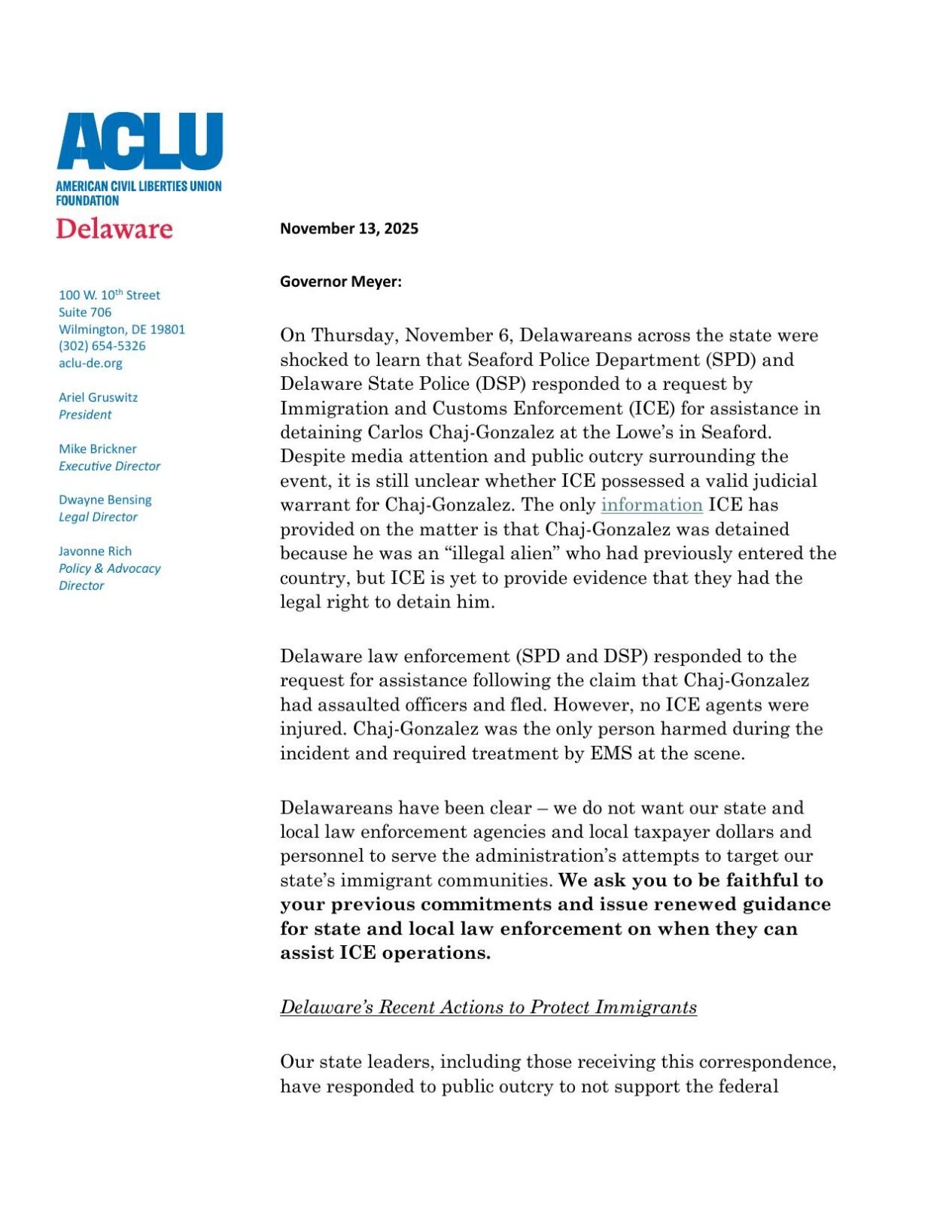DELAWARE - The ACLU of Delaware is urging Gov. Matt Meyer to issue updated guidance outlining when state and local police may respond to requests from federal immigration authorities, following an arrest in Seaford earlier this month.
In a letter released Thursday, the organization asked the governor to reaffirm Delaware’s limits on cooperation with Immigration and Customs Enforcement. The request stems from a Nov. 6 incident in which Seaford Police and Delaware State Police assisted ICE agents seeking the detention of Carlos Chaj-Gonzalez outside a Lowe’s store.
ACLU of Delaware Executive Director Mike Brickner said the Seaford call illustrates how some ICE requests can function as indirect attempts to involve local agencies in federal immigration enforcement. He said the organization wants "very specific guidelines" to prevent situations where a seemingly routine call becomes "a backdoor way" of drawing police into federal immigration operations.
Brickner said the ACLU does not oppose police responding in situations where there is a genuine threat to public safety, but emphasized that those circumstances must be clearly defined. He said state and local officers should only assist when health, safety or life is at risk, and that the boundaries surrounding those situations need to be explicit.
The letter also highlights Delaware’s recent actions limiting cooperation with federal immigration agencies. A law enacted in July banned all 287(g) agreements, which had allowed local police to perform certain federal immigration duties.
The Georgetown Police Department told CoastTV that it does not directly assist with immigration enforcement but that ICE notifies the department about upcoming operations.
Some Sussex County residents have expressed mixed views on the issue. Georgetown local Beth Bokman said she believes local police may assist federal authorities when needed but should not take the lead in immigration enforcement. "I think assisting is fine," she said. "I don't want them to be in the forefront. That's what ICE gets paid to do. But I don't have a problem with it."
Delaware State Police sent this to CoastTV in response to recent situations like the Seaford arrest last week.
"The Delaware State Police do not have any formal agreements with ICE. Our mission remains focused on ensuring public safety for all Delawareans and visitors to our state. Regarding any potential future requests from ICE, the Delaware State Police do not engage in hypotheticals. We assess situations in real time based on their immediate public-safety impact and respond accordingly."
The ACLU gave the governor seven days from Thursday, Nov. 13, to respond to its request for clearer statewide guidance. As of Friday, the governor’s office has not responded to CoastTV’s attempts to obtain comment on the issue.






